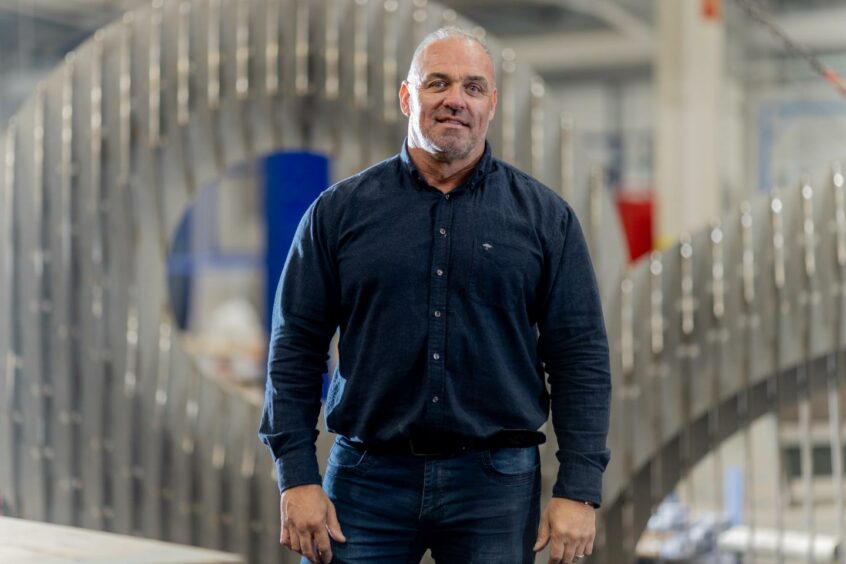A Dundee business that moved to a four-day working week a year ago says there is no going back.
Prior to Covid-19, staff at The Circle used to mostly work Monday to Friday, 9am to 5pm.
When the pandemic hit some employees at the social enterprise were working from home, others were furloughed.
Chief executive Kirsty Thomson realised some staff were struggling with pressures relating to the pandemic.
To help, she’d give workers the occasional extra day off, but then decided to be more radical.
“You could see people getting quite fatigued by the digital side of things,” Kirsty recalled.
“I felt it was important that people could take a break and look after themselves. Many people had extra pressures at home.
“I had been looking at the Scandinavian model of the four-day working week.
“It gives people that extra day to get personal things done and I wondered if it would work.”
What is the four-day working week?
The concept of a four-day working week is growing in popularity.
A national campaign to encourage employers to reconsider the working week highlights several benefits.
These include:
- A better work life balance for staff
- Ability to attract and retain talent
- Fewer sick days and less stress
- More productivity
In October 2020 Kirsty decided to give the change to working hours a go on a trial basis.
She followed advice from the campaign, which included setting a 32-hour working week, with eight hours on four days. Staff are paid the same salary.
How did the move to the four-day week go?
The transition didn’t happen without a few bumps along the road.
“We had people furloughed and part-furloughed. It was the right time to do it, with a smaller number of people,” Kirsty said.
“We had regular check-ins to find out how everyone was doing with it. Some things didn’t work, to be honest.
“When we moved to the four-day week at first, there was a bit of confusion and we lost a bit of an understanding of who was in when.
“There’s been various points it’s been a struggle because we’re all engrained in a Monday to Friday, 9am to 5pm mentality.
“Changing that mindset and behaviour has been one of the biggest challenges.”
Finding solutions
Kirsty says any company thinking of moving to a four-day working week will need to do a huge amount of planning.
Staff sickness can require other workers to be flexible to “muck in”.
After continuing to meet its business ambitions, The Circle made the four-day week a permanent move a year ago.
A breakthrough has been splitting the staff into two teams who have a set day off.
Kirsty explains: “We are going into 2022 with a clear structure on how we want to run it.
“We’ll have two teams – a team that’s off on a Friday and a team that’s off on Monday for the first quarter of the year, then we’ll rotate.
“It means we have Tuesdays, Wednesdays and Thursdays for meetings. This structure allows people to have a run of days.”
How have the staff found a four-day working week?
Kirsty says the impact on morale has been astonishing. She also saw a huge number of applicants for a recent job opening, with people attracted to the way of working.
“Some have taken on professional development opportunities, some are mentoring, some are just enjoying the extra day,” she said.
#4DayWorkWeek pic.twitter.com/9uujjkZrTu
— 4 Day Week Campaign (@4Day_Week) January 20, 2022
“All the staff are benefitting and it’s nice to hear they’ve never experienced a working environment like this.
“For a social enterprise, people are our biggest assets. We need to make sure they are healthy and well and I feel that means they will give us their best.”
Would you encourage other businesses to move to a four-day working week?
The Circle, which has a workforce of 17, gives support to “more than profit” organisations such as charities and social enterprises. It also acts as landlord at its large premises in Staffa Place.
Kirsty says the four-day week hasn’t impacted on the business.
In fact, The Circle’s revenues are up, and it expanded last year, opening a site in Glasgow.
Kirsty says other business leaders thinking about making the change should give it a go – though it won’t work for everyone.
“My main message is: plan. Talk to your staff and give it a go. It might not work out.
“But if your communication is clear with your team you will learn from the process.
“It would be unfair to say it’s been straightforward. It hasn’t been but I’ve enjoyed the process, learned from it and we want to continue.
“We will continue to refine how we work as our headcount increases and keep evolving.”
Another Dundee four-day week trailblazer
Dundee fabrication firm METALtech UK switched to a four-day working week in 2019.
The move came after internal data showed workers were 40% less productive on a Friday.
Managing director Wattie Milne said the move to Monday to Thursday improved continuity, productivity and staff morale.
He said: “All the data clearly identified that sending our site teams all over the UK on a Friday was only achieving around 40% productivity but still carrying 100% of the daily costs.
“By switching to a four-day week, we’ve generated very significant savings, making the business leaner and more sustainable.
“The four-day week is being adopted by more and more businesses across Scotland.
“We know, from Scandinavian data in particular, it not only greatly improves productivity and profitability, but also significantly enhances the overall wellbeing of staff.”
He highlights a better work-life balance and less childcare expense as among the benefits for staff.
METALtech UK employs more than 50 people from three facilities at West Pitkerro Industrial Estate.
The company achieved a turnover of £5.8 million in 2021, up from £3.8m in 2020.
The Dundee model will now be replicated across METALtech’s other UK locations.
“Our goal is to extend the four-day week to all staff and management across all METALtech UK’s operations over the next 12 to 18 months,” Wattie said.
“The four-day working week improves productivity and allows us to continually expand, which in turn creates more jobs but with superior working conditions.
‘This is a win-win situation, not only for the company but for staff.”
Staff set their own hours
Another Dundee pioneer, Ace Aquatec, has gone even further.
Based at City Quay, it lets its staff set their own hours.
“People have the freedom to come in and work whenever they feel like it,” explained managing director Nathan Pyne-Carter.
“If people want to extend their weekends then they can take a Friday or a Monday off and it’s not taken as holiday.
“All of these things mean your staff want to work for you and your people work really hard in the time that they are working. We have a unique culture.”














